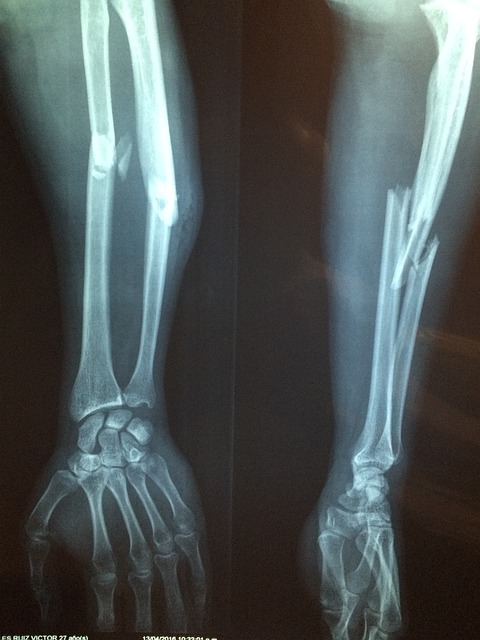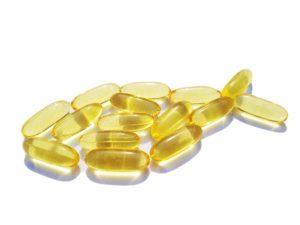Nutrients that Support Bone Fracture Healing

When a bone is fractured or broken, it can be a long healing process. During this process, providing the body with the correct nutritional support may improve bone healing. While most people think of calcium for supporting bone health, other vitamins and minerals can also be of benefit.
Calcium and Vitamin D
While the most obvious nutrients for supporting bone fracture healing, there is a surprising lack of research exploring the benefits of calcium and vitamin D. Findings from animal studies suggest that bone fracture healing can be compromised when vitamin D and calcium levels are low. Additionally, supplementation appears to improve the healing process (Fischer 2018).
A major concern following bone fracture is for older individuals that have osteopenia or osteoporosis. If calcium levels are low, there can be “post-traumatic bone loss.” Due to the calcium needs for repairing the fracture, calcium may be taken from the other bones of the body to support fracture healing. This can result in worsening bone density contributing further to osteoporosis development (Fischer 2018).
Magnesium
Bones are made up of more than just calcium. Magnesium is also critical to bone health. In fact, estimates suggest that 60% of the total magnesium content of the body is stored in bone (Navarro 2007). Studies have clearly associated magnesium with greater bone mineral density and decreased fracture risk (Rondanelli 2021).
A recent study evaluated supplementing both calcium and magnesium in patients with recent fractures. The study found lower inflammation and higher circulating magnesium levels that can play a crucial role in the process of fracture healing for patients (Song 2022).
Zinc
Zinc is also important for supporting bone mineral density and lower intake is correlated with higher fracture risk. Data also suggests that zinc may improve bone formation (Ceylan 2021). In a clinical trial and animal studies, zinc supplementation has been shown to improve fracture healing (O’Connor 2020). In humans given supplemental zinc after bone fracture, bone formation occurred more rapidly than in patients given placebo (Sadighi 2008).
Vitamin C
As a nutrient, vitamin C is necessary for the repair of connective tissue. It also plays a part in both bone development and maintenance. The effects likely stem from vitamin C’s effects on supporting the production of collagen (Hagajanian 2015). While bones are made out of minerals like calcium, phosphorus and magnesium, they also have a collagen matrix. This matrix supports the structure of bone, providing the underlying scaffolding for bone mineralization.
Boron
While often overlooked, boron is likely a necessary trace mineral that has an impact on bone health. Animal studies have shown that boron appears to improve bone formation (Uysal 2009). Cellular studies have also shown that boron is important for bone cell function and bone regeneration (Hakki 2010). Animal studies that provide boron directly to bone injury sites by injection have also shown improved bone healing (Hadidi 2021).
Silicon

Another often-overlooked mineral, silicon is of significant importance to bone health. Silicon has been shown to improve bone density and bone regeneration (Arora 2017). While not well understood, silicon appears to play a role in both collagen production and stabilization in bone. One of the simplest sources of silicon is the herb horsetail or Equisetum arvense which contains significant amounts of the mineral (Labun 2013).
Collagen
As previously mentioned, collagen is a protein that makes up the connective tissue in the body, providing the underlying scaffolding for bone. As a protein, collagen is made up of amino acids, including high levels of proline and glycine (Gauza-Włodarczyk 2017). In order to produce or repair collagen, your body needs to have adequate amino acids in abundant supply. Recently, collagen supplements that provide these amino acid building blocks have become popular. Animal and cell-studies suggest that supplemental collagen can improve bone regeneration and promote bone mineralization (Yamada 2021). Studies also suggest benefits of collagen for preventing osteoarthritis and osteoporosis, although human studies are needed to confirm the effects (Geahchan 2022).
Conclusion
Bone fracture healing requires a number of nutrients. By providing these nutrients during the healing process, it may be possible to promote bone formation. While more human trials are needed, evidence still suggests the potential for benefits with proper nutritional supplementation.




Hi, I just found out I have stress fractures in my feet, your website was very informative. I would love to know of high-quality brands that don’t have fillers in them that actually contain what the bottle says.
In order to keep the website information free from bias, I do not recommend specific brands or sell supplements through the website. However, I very much understand your concerns. The simplest approach to figure out if a company is providing a quality product is to ask if they have independent lab testing that verifies the ingredients and checks for contaminants in their product. If the company claims that they do, ask for copies of the testing. If they can’t give you copies, get the product somewhere else. While this doesn’t guarantee quality, it is a step in the right direction.
Be aware that some companies may just give you product data sheets produced by the supplier, which is not the same thing as independent lab testing.